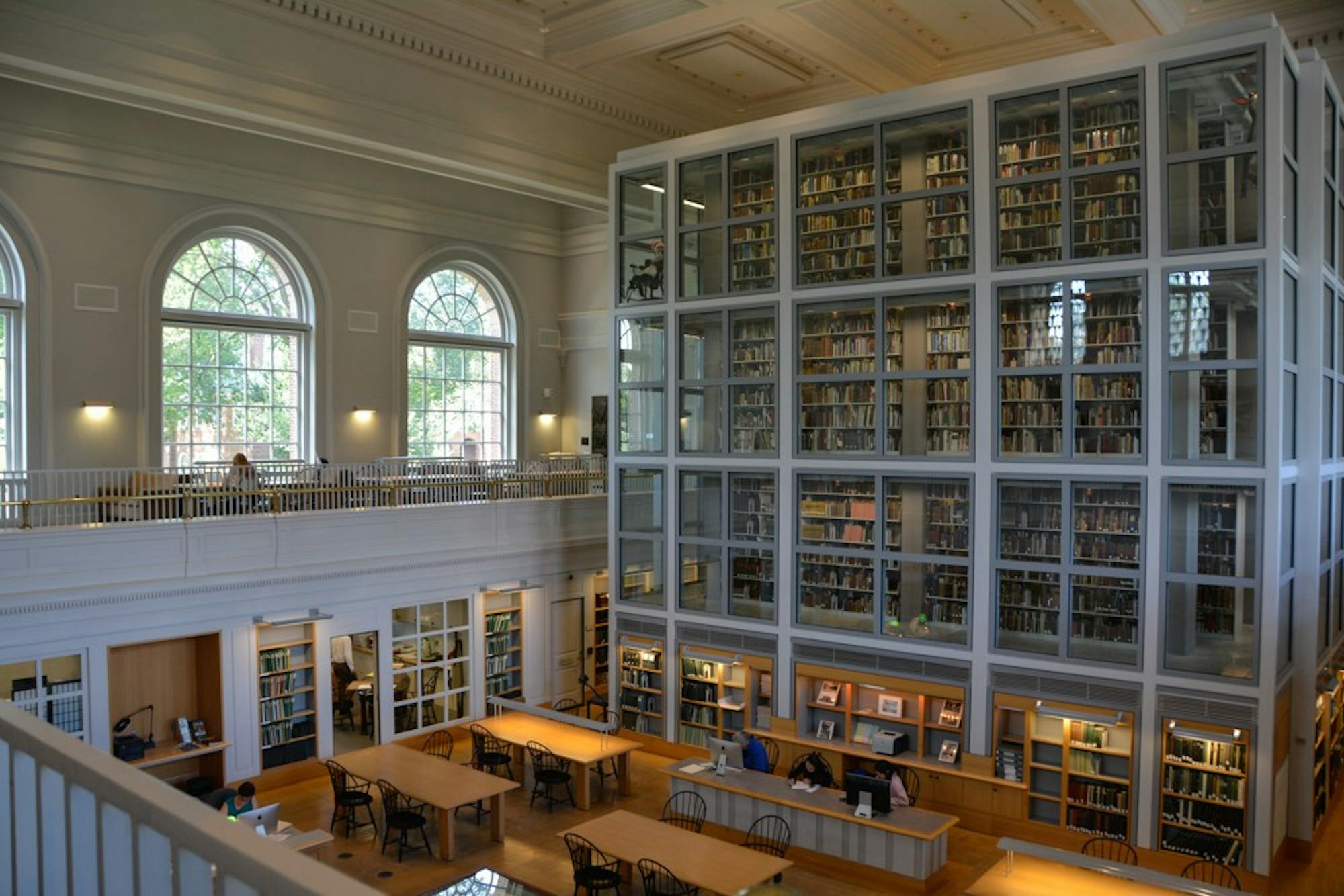The premise of special collections is an art form that breaks the conventions of time.
One of Dartmouth’s many libraries, Rauner Special Collections Library blends the intellectual with the emotional. The library allows artists and authors to converse across generations. Through exhibits curated by students and faculty, tailored workshops and hands-on classes, Rauner serves as an incubator for novel knowledge, effectively crowning the library as the zenith of intellectual life on campus.
“I think that special collections have this sort of reputation for being really stuffy, elitist and closed off, and we want to turn that notion on its head,” said Morgan Swan, Special Collections education and outreach librarian.
Abandoning the archaic constructs of institutional elitism, Rauner champions complete accessibility to students and the public; everything in the collection can be used in the reading room. Having Shakespeare’s first folio certainly lends prestige to the place, but Rauner’s collecting direction isn’t to have the first edition of every manuscript; rather, Rauner’s librarians target items with high research value and tailor the collections to supplement Dartmouth’s curricular evolution.
When looking to add to the collections, Swan considers “what [the collections are] missing that if we had them could create some wonderful package of materials that students could really engage with and get excited about.”
College archivist Peter Carini said he looks to add items from alumni, such as letters or diaries that document their experiences at Dartmouth on a personal level.
“The library is always interested in the evolution of Dartmouth’s student experience — particularly in people who may have felt marginalized at one time or another at Dartmouth or by its history in some way,” Carini said. “Anyone’s experience at Dartmouth is important to us.”
For Jay Satterfield, Special Collections librarian, the collections are there to be handled.
“I think of that big glass box as just full of latent potential. [The manuscripts] sitting there right now are doing absolutely nothing except looking great,” Satterfield said. “But then when they come out and when students, visiting researchers or faculty use them, they become manifest. That’s when [the collections] do their work.”
Despite open doors, special collections often induce library anxiety in undergraduates. In an effort to invite those who may be a little library-shy, Rauner’s staff aims to “demystify” the space through various outreach efforts.
One successful medium of outreach is Rauner’s blog, which posts bi-weekly and ranks within the top 5 percent of all special collections blogs, Satterfield said.
“The blog [focuses] on getting people’s attention and is a great avenue for people who don’t really know what they want to see in Rauner,” Satterfield said. “We try to tell great stories out of the collections and get people excited about what we do here and what we have here.”
As a part of outreach efforts, Rauner offers resources and workshops to interested groups and individuals around campus who want to know more about their history.
“During intercessions, we even host classes for local fifth graders on the transition from manuscript to print in the 15th century,” Satterfield said.
Rauner also hosts exhibits curated by students and staff that typically change four to five times a year. The current exhibit, titled “Power, Honor and Authority,” pays tribute to Samson Occom,celebrating a project that digitized all of Occom’s works. The exhibit, which explores Occom’s role in the founding of Dartmouth, will be featured in Rauner’s second floor exhibit until Oct. 28.
Rauner is a critical component of the Dartmouth curriculum and experience. Just last year, 126 different classes from 36 departments were taught in the library, Satterfield said.
Rauner works as an interactive museum for these classes. In line with College President Phil Hanlon’s experiential learning initiative, students are encouraged to explore the manuscripts, rare books, objects and archives, which are selected based on the theme of the class. Students gather information by investigating items in the room, discussing them and conducting independent research.
“It’s not just about the guy writing his 10th book and he’s doing his research here,” Satterfield said. “It’s about an 18 year old learning about something here in the classroom and creating something new.”
The collections nurture a distinct approach towards the future that begins with rediscovering the past. Rauner encourages undergraduates to connect with some of history’s greatest minds.
“A lot of times as an undergraduate, what you’re doing in a class and in an exam demonstrates mastery,” Satterfield said. “There’s a point where rather than demonstrating mastery, you’re creating new knowledge. You’re making a big shift. Special Collections are where highly motivated undergraduates can make that turn far earlier in their academic careers.”




